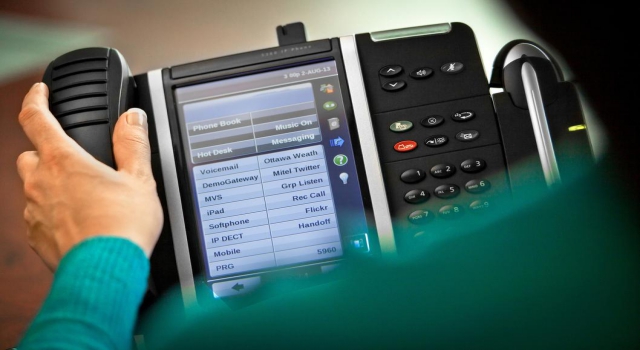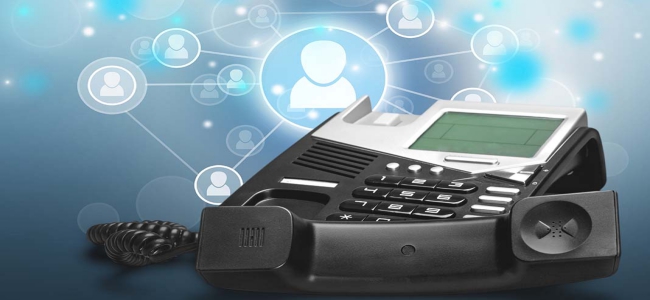PBX is a telephone system within an enterprise that connects telephone extensions of a company to outside public telephone network while allowing all users to share a specific number of external telephone lines. To understand the difference between PBX vs Hosted PBX read the full article. Initially, Private branch exchanges were using analog technology but now PBX uses digital technology. While VoIP is an industry acronym which stands for (Voice over Internet Protocol), is an IP telephony term that enables the users to use the Internet as the transmission medium for telephone calls. It allows sending voice data in a digital form using IP rather than by traditional circuit transmissions of the PSTN.
But due to advancement in technology and widening availability of internet connections VOIP has become a popular telephone option for homes and companies now. But in the past PBX was only the main source of business communication using complex types of traditional circuit transmissions.
Differences between analog and digital:
Cost
The main advantage of digital (VoIP) is cost; it saves money both for the starting set up and for monthly charges. It does not require a large number of expensive phone lines for installation. It simply works with traditional telephone and has a lesser expensive installation process requires. It requires only online signup and the small amount for setup and phone adapters to activate the service. Calls are almost free, with a low or fixed monthly charge. While a PBX system consists of a huge number of electronic equipment and a large amount is required to purchase the equipment and that too on monthly charges. Hence, low cost is the main reason for companies to adopt VoIP systems.
Mostly PBX offers many of the same advantages as VOIP and usual land-based phone services like call waiting, forwarding, caller ID but it is little expensive.
Flexibility
PBX is a system that allows you to have several connected lines using the main landline-based phone service while VoIP takes it through the internet. With VoIP, you can add telephone contact no. according to the bandwidth of internet connection. If the capacity exceeds then call quality suffers. But in case of PBX, extra amount need to pay to add more capacity. Hosted VoIP allows you to minimize PBX hardware and eliminates the need to maintain idle telecom circuit capacity. A PBX with VoIP means that other apps can interact with it in the same service. A cloud-based PBX takes this concept yet further, removing the central hardware infrastructure from the premise and leaving behind a small footprint of VoIP phones and adapters, and providing a standard API for application access.
Consistency
The main disadvantage of a VoIP system is its total dependence on the internet. If the power cut off or internet failure occurs, the company is left without any phone service. While PBX telephone lines does not face this problem because it gets power through the telephone wire and regularly functions even during a power cut off. Hence when the VoIP service is down, many organizations keep at least one traditional phone so they can make critical calls.
Voice excellence
The voice quality or excellence of VoIP calls totally depends on the quality of the broadband Internet connection. If you live in an urban area and have a high-capacity connection with high bandwidth, your call quality will be alike to that for calls made with traditional landlines. But if the Internet connection doesn’t have a high-capacity connection or blockage exists anywhere else on the Internet, call quality weakens.
The main reason VOIP wins when we compare both is the fact that, with VOIP all of the equipment and maintenance is directly carried on the VOIP processor. While with PBX systems the customers need to buy all the electronic equipment necessary for communications.
VOIP is largely the best alternative for personal use and small businesses while PBX offers a greater variety of advantages when it comes to medium or large businesses.
Thus, when you differentiate between VOIP and PBX, Remember both are valuable services and have their own advantages and drawbacks, which are evaluated according to your basic telecommunication needs.








